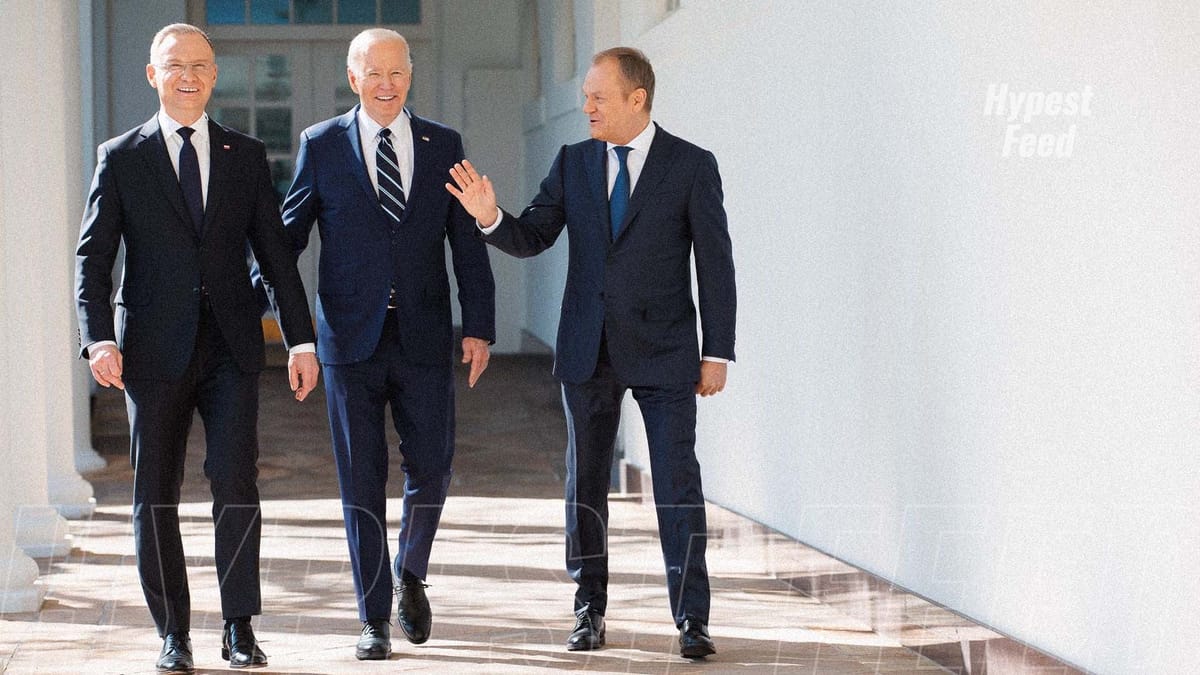Polish Prime Minister Donald Tusk issued a grave warning, signaling that Europe is currently navigating a precarious "pre-war era" and emphasizing the crucial need for Ukraine to resist Russian aggression for the continent's collective well-being. Tusk underscored that the specter of war is not confined to history but is a stark reality that has been unfolding for over two years.
Tusk's remarks came in the aftermath of a significant assault launched by Russia on Ukraine's energy infrastructure on Thursday. Despite this, Russian President Vladimir Putin asserted earlier in the week that Moscow harbored no aggressive intentions towards NATO-affiliated nations. Dismissing notions of an attack on NATO members such as Poland, the Baltic states, and the Czech Republic, Putin labeled such suggestions as "complete nonsense." However, he cautioned that Ukrainian use of Western F-16 warplanes stationed in other countries could render them "legitimate targets," regardless of their location.
The recent escalation follows Russia's full-scale invasion of Ukraine in February 2022, marking a nadir in relations between the West and Russia not witnessed since the Cold War era. In the latest assault, nearly 100 missiles and drones were employed, causing partial blackouts in several regions. This marked the second instance of a concentrated attack aimed at overwhelming Ukrainian defenses within a week.
Ukrainian President Volodymyr Zelensky condemned the tactic as "missile terror," highlighting the perilous consequences of attacks on hydro-electric power plants, which could trigger a significant environmental catastrophe. The mayor of Kharkiv, a city now grappling with power shortages and economic distress, lamented the severity of the grid damage, estimating a potential two-month timeline for full restoration.
In a plea for urgent military assistance for Ukraine, Tusk underscored the pivotal role the next two years would play in determining the course of the conflict, describing the current juncture as the most critical since the conclusion of World War II. Tusk pointed out Russia's deployment of hypersonic missiles in a daytime attack on Kyiv as a testament to the escalating aggression. He further criticized Putin's attempts to blame Ukraine for a jihadist attack on Moscow's Crocus City Hall without evidence, viewing it as a pretext for increasingly violent assaults on civilian targets within Ukraine.
In his first interview with European media since reassuming the office of Polish prime minister in late 2023, Mr. Tusk emphasized the urgent need for leaders across the continent to fortify their defense capabilities. Advocating for a strengthened European defense apparatus, Tusk asserted that while Europe doesn't necessarily need to replicate parallel structures to NATO, enhancing self-sufficiency militarily would render the continent a more appealing partner for the United States, irrespective of the outcome of America's presidential election in November.
Currently, Poland allocates 4% of its economic output towards defense, surpassing the NATO target of 2%, a benchmark many other European nations have yet to achieve. This stance echoes Tusk's prior warnings about the necessity for Europe to brace itself for the prospect of war.
Tusk revealed an intriguing exchange with Spain's Prime Minister Pedro Sánchez, who purportedly urged fellow EU leaders to eschew using the term "war" in summit declarations to avoid instilling fear among the populace. Tusk's response underscored the stark reality confronting certain parts of Europe, where the specter of war isn't an abstract notion but a palpable threat looming on the horizon, leading him to caution that virtually any scenario is plausible in this volatile geopolitical landscape.
Expressing a sobering outlook, Tusk stressed the imperative for mental preparedness, urging acceptance of the onset of a new era—the "pre-war era." Reflecting on his previous tenure as Polish prime minister from 2007 to 2014, Tusk remarked on the limited awareness among European leaders, beyond Poland and the Baltic states, regarding Russia's potential as a destabilizing force.
Despite these challenges, Tusk expressed optimism regarding what he perceives as a genuine shift in mentality across Europe. However, amidst this discourse, Ukraine's newly appointed commander-in-chief, Gen Oleksandr Syrskiy, offered a candid assessment in a rare interview, acknowledging Russia's overwhelming military advantage over Ukrainian forces at a ratio of approximately "six to one" on the front lines. Syrskiy lamented the loss of territory that could have been retained with adequate ammunition and air defense systems, characterizing the situation in certain conflict zones as "tense."



Member discussion: